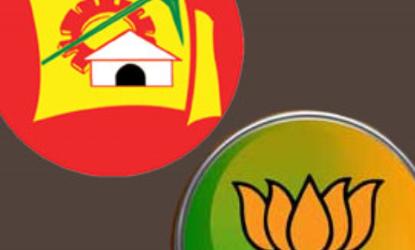As per the 1985 Act, a 'defection' by one-third of the elected members of a political party was considered a 'merger'. Such defections were not actionable against.The Dinesh Goswami Committee on Electoral Reforms, the Law Commission in its report on "Reform of Electoral Laws" and the National Commission to Review the Working of the Constitution (NCRWC) all recommended the deletion of the Tenth Schedule provision regarding exemption from disqualification in case of a split.
Finally the 91st Constitutional Amendment Act, 2003, changed this. So now (since 2004) at least two-thirds of the members of a party have to be in favour of a "merger" for it to have validity in the eyes of the law. "The merger of the original political party or a member of a House shall be deemed to have taken place if, and only if, not less than two-thirds of the members of the legislature party concerned have agreed to such merger," states the Tenth Schedule.
Now the YSR Congress Party MLAs and MPs may consider this. Since elections were held in the undivided Andhra Pradesh state, total number of MLAs and MPs would be reckoned for calculating the anti defection law rules.with 9 MPs being elected on YSRCP ticket, if 6 MPs join TDP or BJP, they would not face anti defection law because they conform to the two third majority rule for merging into another party.
with 70 MLAs being elected on YSRCP ticket, if 46 MLAs join TDP or BJP, they woud not face anti defection law since they conform to the two third majority rule for merging into another party.
Alternately, if 46 MLAs and 6 MPs vote in favour of merging the YSRCP into TDP or BJP, the election commission would deem it legal and the entire YSRCP would be merged into the TDP or BJP even if jagan and the balance one third members oppose such move. In such a scenario, jagan and the balance one third may have to resign or leave the party and face disqualification.
మరింత సమాచారం తెలుసుకోండి:






















